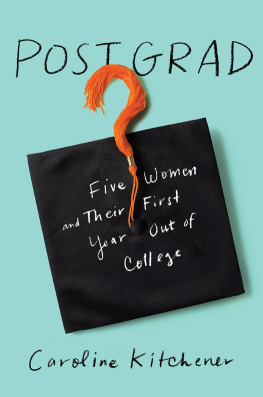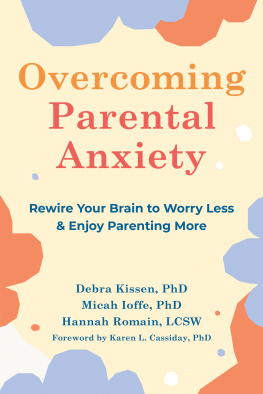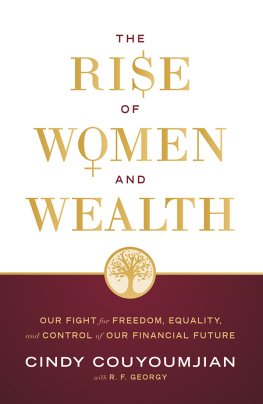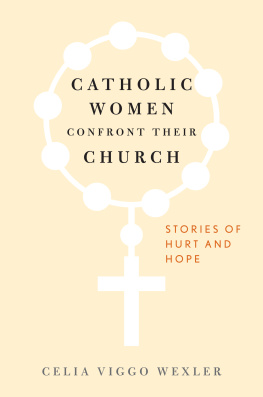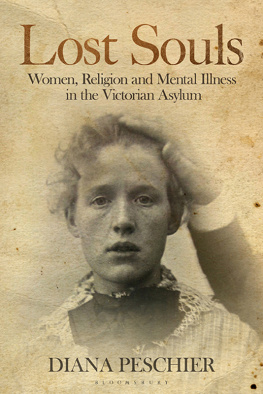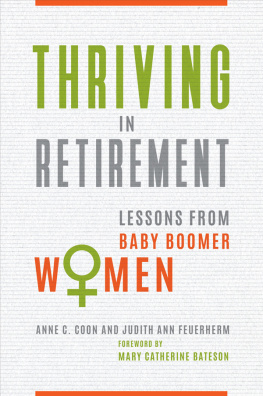Kitchener - Post grad: five women and their first year out of college
Here you can read online Kitchener - Post grad: five women and their first year out of college full text of the book (entire story) in english for free. Download pdf and epub, get meaning, cover and reviews about this ebook. City: United States, year: 2017, publisher: HarperCollins;Ecco, genre: Science fiction. Description of the work, (preface) as well as reviews are available. Best literature library LitArk.com created for fans of good reading and offers a wide selection of genres:
Romance novel
Science fiction
Adventure
Detective
Science
History
Home and family
Prose
Art
Politics
Computer
Non-fiction
Religion
Business
Children
Humor
Choose a favorite category and find really read worthwhile books. Enjoy immersion in the world of imagination, feel the emotions of the characters or learn something new for yourself, make an fascinating discovery.
- Book:Post grad: five women and their first year out of college
- Author:
- Publisher:HarperCollins;Ecco
- Genre:
- Year:2017
- City:United States
- Rating:4 / 5
- Favourites:Add to favourites
- Your mark:
- 80
- 1
- 2
- 3
- 4
- 5
Post grad: five women and their first year out of college: summary, description and annotation
We offer to read an annotation, description, summary or preface (depends on what the author of the book "Post grad: five women and their first year out of college" wrote himself). If you haven't found the necessary information about the book — write in the comments, we will try to find it.
Kitchener: author's other books
Who wrote Post grad: five women and their first year out of college? Find out the surname, the name of the author of the book and a list of all author's works by series.
Post grad: five women and their first year out of college — read online for free the complete book (whole text) full work
Below is the text of the book, divided by pages. System saving the place of the last page read, allows you to conveniently read the book "Post grad: five women and their first year out of college" online for free, without having to search again every time where you left off. Put a bookmark, and you can go to the page where you finished reading at any time.
Font size:
Interval:
Bookmark:

FOR MILLY,
who stood beside me at graduation and always
T wo weeks into my senior year at Princeton, I went to a recruitment event for one of the largest consulting firms in the world. I put on my suit, blew my hair dry, and walked over to Prospect House, a facility typically reserved for Princetons most exclusive gatherings: award ceremonies, board of trustees meetings, faculty retirement parties. As soon as I walked in, it was clear I wasnt going to get a seat. There must have been more than two hundred students crammed into the main dining roomall in suits, all wearing name tags, all staring intently at the projector screen at the front of the room.
Every year, approximately 30 percent of Princeton graduates go into finance or consulting. Id always thought that number seemed absurdly high. For the past four years, Id watched top students I knew in every majorfinancial engineering, but also English, anthropology, and public policycompete with one another for a spot at one of the top consulting firms or investment banks. I figured the main draw was the $70,000 to $100,000 starting salary, but I knew there must be more to it than that.
Id never envisioned a career in consulting before, but listening to the associates describe their experiencesmany of them just two or three years older than meI started to see it: sitting at a desk with a view of downtown Manhattan, going out for drinks with my team after work, working out at the firms private gym with a girl I knew from college. Up until that point, the months and years after graduation had seemed completely nebulous. I had no idea what to expectno idea what Id be doing and no idea whom Id be doing it with.
But now the consulting firm associates were presenting me with a clear and familiar picture. They spent a good twenty-minute chunk of the presentation discussing mentorship. They all said they had at least three senior people at the firm they could go to for advicepeople who were personally invested in their success. Throughout the event, they also casually referred to their class: the group of thirty or forty first-year college grads who started working at the firm at the same time. Every Friday, the company sponsored a happy hour somewhere in downtown Manhattan, attended by almost all first- and second-year employees. While the young associates acknowledged that they worked long hoursoccasionally staying at the office until well after midnightthey said it wasnt that bad because they were doing it with their closest friends. I thought about all the times my friends and I had camped out in the Princeton library until one or two in the morning. Consulting, I thought, sounded just like college.
Im sure the speakers from the consulting firm wanted me to feel this way. Theyd probably spent years honing this presentation, figuring out exactly what would appeal to college seniors. They knew we were anxious about our first year out of college. They knew we wanted a community.
Graduating from college is like leaving a pool and jumping into the ocean. In the ocean, things are uncertain. You have currents you cant control pulling you in different directions, and you lack the community that helped you get through college.
Consulting firms and investment banks (which have a similar recruiting model) rope off a section of the ocean, and create their own little pools. If you reach one of these pools, youre safe. Again, youre surrounded by a cohort of people your own agefriends, potential future life partnersand you have a built-in topic to talk about: work. And while the finance and consulting tracks arent as popular at most other schools as they are at Princeton, these kinds of pools exist everywhere. When I started interning at Atlantic Media (home of The Atlantic magazine) the summer after my junior year, for example, twenty recent college graduates had just started their yearlong fellowships. Immediately, the fellows found themselves in a community similar to the one they had in college, hanging out together after work and on weekends.
As a student at Princeton, its easy to feel like all of your peers are taking jobs with employers who recruit large numbers of recent grads because those companies are the ones you hear about most. But in reality, even though a large chunk of Princeton grads find their way to the safe harbors of finance and consulting, most of us dont. This book is about five women who, for the first year after graduation, stayed in the ocean. Its about how we built our own communities when we didnt have anyone to do it for us.
DURING MY SENIOR YEAR at Princeton, I started following four women in my graduating class, interviewing them about their time at college and their plans for the future. I intentionally chose women who were very different from one another: with different aspirations, values, and racial, ethnic, and socioeconomic backgrounds. For one year after graduation, I continued interviewing these women, regularly visiting them in their new cities and watching them transition from college to whatever came next: coding for a large real estate company, filming a documentary, applying to medical school, or singing jazz at a prestigious music conservatory.
As a group, women my age have been written about a lot. Journalists and researchers have tried hard to figure us out: what drives us, what scares us, what makes us different from our parents generation. When I started working on this book, I thought I would study my peers in a similar wayobserve the choices they made, and record. But a few months after graduation, I realized I couldnt separate my own experiences from theirs. Most of what they were feeling, I was feeling, too. I decided to make myself the fifth character and tell our stories together.
I didnt write this book to make sweeping generalizations about our generation. I wrote about only five women. Our experiences and identities dont represent all young women in their early twenties, or even all young women in our graduating class. But while I was reporting and writing, I was surprised by how many similarities emerged among the five narratives. As different as we all were, during our first year out of college, we had a lot of the same priorities and concerns. Up until graduation, structured school communities had always determined how we fit into the world. After we left college, we each struggled to figure that out on our own. Even if other recent graduates cant relate to our exact experiences, I think theyll connect to what I see as universal feelings of confusion, self-doubt, and isolation. I hope this book will give some insight into whats hard about this crucial transitional year, particularly for women.
This first post-graduation year is especially important now, as women have started to outpace men in the college classroom but continue to fall behind them in the workplace. In 2015, for the first time since the U.S. Census Bureau started collecting data on higher education, women became more likely than men to get a college degree. By following five women through the first year out of college, carefully documenting the decisions each of us made, I thought I might be able to begin making some sense of these numbers. Again, I cant draw any overarching conclusions from the lives of only five women, but I was able to observe and report on the subtle ways in which gender seems to influence womens decisions and priorities at this important stage in our lives.
THERE IS A LOT OF PRESSURE inherent to the first year out of college. This is true for all college graduates, but I think its particularly intense coming out of a school like Princeton. At Princeton, students are surrounded by people with extraordinary professional goals and expectations. Starting freshman year, my teachers, parents, and classmates regularly told me there was nothing I couldnt do. In my first week, one guy on my hall announced he was going to be president, then spent twenty minutes detailing exactly how he was going to get there: he would spend two years at a consulting firm where he would specialize in one particular issue, run for local office at age twenty-five, run for Congress at thirty-five, and make his first presidential run before he turned fifty. Students at Princeton not only have lofty aspirations, they have plans. Less than a year after graduation, Ben Taub, a fellow member of the Princeton class of 2014, published a nine-thousand-word investigative piece in
Font size:
Interval:
Bookmark:
Similar books «Post grad: five women and their first year out of college»
Look at similar books to Post grad: five women and their first year out of college. We have selected literature similar in name and meaning in the hope of providing readers with more options to find new, interesting, not yet read works.
Discussion, reviews of the book Post grad: five women and their first year out of college and just readers' own opinions. Leave your comments, write what you think about the work, its meaning or the main characters. Specify what exactly you liked and what you didn't like, and why you think so.

